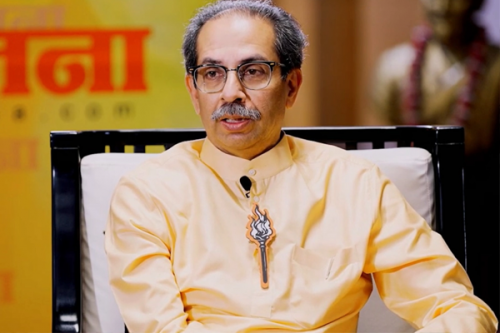Maharashtra's Political Unrest: Uddhav Thackeray's Coalition with Congress and NCP Sparks Public Disillusionment

Uddhav Thackeray, former Chief Minister of Maharashtra, finds himself in a precarious political position following his controversial decision to join hands with Congress and the Nationalist Congress Party (NCP). This move, which many see as opportunistic, has led to widespread criticism and discontent among the people of Maharashtra, many of whom feel betrayed by Uddhav Thackeray’s break from his party’s traditional alliance with the Bharatiya Janata Party (BJP).
The 2019 Elections: A Turning Point
In the 2019 Maharashtra Assembly elections, the BJP-Shiv Sena alliance secured a clear majority, with the BJP winning 105 seats and Shiv Sena taking 56. Together, the Grand Alliance commanded a total of 161 seats, which is enough to form a government. However, when it became evident that the BJP would need Uddhav Thackeray’s support to govern, Uddhav Thackeray shocked political circles by severing ties with the BJP and forming a coalition with Congress and Sharad Pawar’s NCP to secure the position of Chief Minister.
This dramatic realignment, motivated largely by Uddhav Thackeray’s ambition, immediately drew criticism. His decision to join hands with Congress—a party diametrically opposed to Shiv Sena’s traditional ideology—raised questions about his political judgment and the future of his party. Throughout his tenure as Chief Minister, Uddhav Thackeray faced challenges in managing the government and was frequently criticized for his lack of engagement in parliamentary proceedings. His rare appearances in the Chief Minister’s office and inadequate responses to the opposition’s questions further fueled the perception that he was ill-equipped for the role.
Internal Party Conflicts and Strategic Missteps
Uddhav Thackeray’s alliance with Congress and NCP has been marred by internal strife and political maneuvering. While Uddhav Thackeray hoped to gain electoral strength from Congress and NCP, the relationship has been largely one-sided. Congress and NCP leaders, particularly Sharad Pawar, have reportedly taken advantage of Uddhav Thackeray’s leadership to secure votes for their parties, without offering reciprocal support to Shiv Sena. This left Uddhav Thackeray in a vulnerable position, with his leadership coming under increasing scrutiny.
The tensions between the alliance partners came to a head when Uddhav Thackeray unilaterally announced a candidate for the Sangli Lok Sabha constituency, without consulting to Congress leaders. This led to the election of a rebel candidate, deepening the rift. Uddhav Thackeray’s decision to back his personal secretary’s candidacy in the Legislative Assembly elections also angered Sharad Pawar, further isolating him within the coalition.
A Calculated Strategy by Congress and NCP
Congress and NCP’s strategy seems clear: weaken Uddhav Thackeray’s hold over Shiv Sena while securing a stronger position for themselves in future elections. Uddhav Thackeray is increasingly sidelined and left with few options but to go along with the plans of his coalition partners. This has already led to fractures within his party, with several ministers and MLAs shifting their support to Congress and NCP.
Adding to Uddhav Thackeray’s troubles, allegations have surfaced recently from activist Manoj Jarange Patil, who accused Uddhav Thackeray of attempting to frame him in a case. Some speculate that these accusations were made under the influence of Sharad Pawar, further complicating the already strained relations between the alliance partners.
The emerging pattern shows that Congress and NCP view Shiv Sena (under Uddhav Thackeray’s leadership) as a weak link and are taking steps to undermine his image while benefiting from their association with him. These tactics, aimed at consolidating power, have left Uddhav Thackeray politically isolated and weakened.
A Political Gamble That Backfired
Uddhav Thackeray’s decision to abandon the BJP and form an alliance with Congress and NCP has proven to be a costly mistake. The partners he relied on to maintain power are now actively working to diminish his political influence. Uddhav Thackeray’s gamble has led to internal strife within his party, loss of support, and increasing criticism from both his opponents and coalition partners.

|

|

